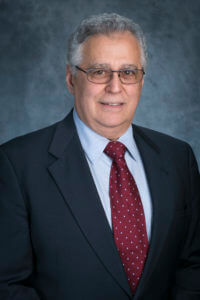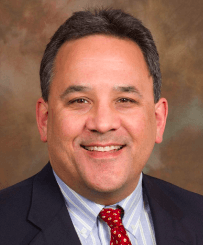This is a guest post from Robert Yapundich, MD and Gregory Schimizzi, MD. Dr. Yapundich is a practicing neurologist in Hickory, North Carolina and a member of the Alliance for Patient Access. Dr Schimizzi is a practicing rheumatologist, treasurer of the Coalition of State Rheumatology Organizations and co-convener of the Biologics Prescribers Collaborative.


Distinguishable biosimilar naming was the top issue for biologics prescribers at a Washington, D.C. summit recently convened by the Alliance for Patient Access and the Biologics Prescribers Collaborative. Biologics, whether originator or biosimilar, require the kind of careful prescribing and robust monitoring that is possible only with distinguishable names.
FDA would seem to agree. The agency has approved two biosimilars so far and given both non-proprietary names made distinguishable by four-letter suffixes. Last year, FDA approved Zarxio (filgastrim-sndz) and distinguished its name with a suffix that represented the drug’s manufacturer (Sandoz). The approach is useful for improving patient safety.
But this year the agency approved Inflectra™ (infliximab-dyyb) and gave it a meaningless suffix. The decision struck some as a disingenuous nod to the need for distinguishable names, because random suffixes may be more difficult to remember and less useful as an aid for pharmacovigilance.
Perhaps the FDA is ambivalent on the use of distinguishable names to protect patient safety. Most physicians, however, are not.
Prescribers see how biologics, which are complex, large molecules produced by living cells, can positively change patients’ lives. Biosimilars can do the same by providing additional therapeutic options at potentially lower costs. Likewise, prescribers also see how biologics can cause unexpected immune and other adverse reactions in some patients.
Distinguishable names that use memorable suffixes can help both physicians and regulators track these adverse events.
Just consider FDA’s adverse event reporting system (FAERS). All but four percent of FAERS reports come from manufacturers; consumers and health care professionals first report adverse events to manufacturers, who in turn relay the reports to FDA. To match adverse events to the correct biologic or biosimilar, physicians and patients must report these events to the right manufacturer. Distinguishable names with logical suffixes increase the likelihood of accurate reporting.
A similar argument applies to the use of J-codes in FDA’s Sentinel program. A separate, distinguishable J-code for each product facilitates product tracking. However, CMS is assigning only one J-code to all biosimilars of a single originator biologic. The agency’s intent is to set the maximum reimbursement as the average price of the group of products, but it may jeopardize tracking capability as a result.
In a concession some may also call disingenuous, CMS is adding manufacturer identifiers to biosimilar J-codes. This can help computers differentiate specific biosimilars. However, humans interacting with the system could easily get the impression that biosimilars of an originator biologic are identical to the originator and to one another. They are not.
As prescribers, we want biosimilars to succeed. We firmly believe the route to success requires policies that strengthen the confidence of patients and prescribers alike. These policies must ensure alignment and consistency across all systems for safety.
At FDA, biosimilar naming should support the FAERS system and patient safety by applying distinguishable names with a memorable suffix. Meanwhile, at CMS there should be separate J-codes – in addition to manufacturer modifiers – to ensure each biosimilar is distinguishable for both computers and humans.
Patient safety is everyone’s goal. So let’s be distinguishable, not disingenuous.
About the authors:
Robert Yapundich, MD, is a practicing neurologist in Hickory, North Carolina and a member of the Alliance for Patient Access and spoke during the Summit.
Gregory Schimizzi, MD is a practicing rheumatologist, treasurer of the Coalition of State Rheumatology Organizations and co-convener of the Biologics Prescribers Collaborative.
Both may be contacted through Susan Hepworth, [email protected]